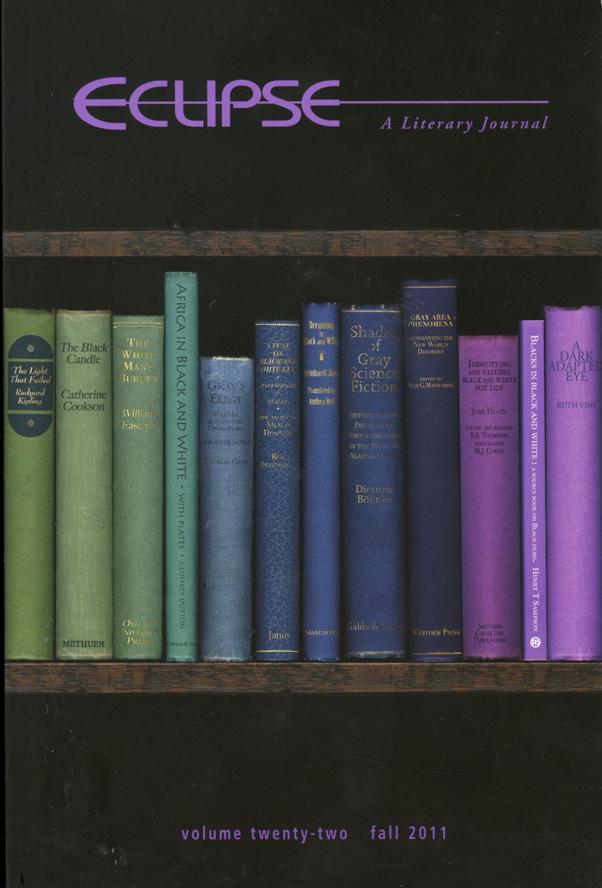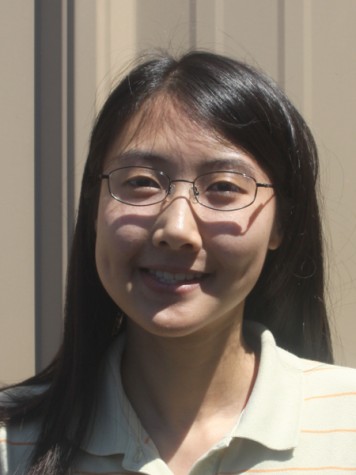To go beyond. That is what Bart Edelman, the editor of Eclipse for 22 years and professor of English, and a team of editors have done with Eclipse: a Literary Journal. The national journal publishes poetry, plays and short stories written by students and professional writers from across the country.
In the 1980s, the journal was called The Bridge. After a few years, the English department chair, Veloris Lang, asked Edelman if he would like to be the editor. Edelman had just started to teach creative writing classes and volunteered to do it.
“It started out very innocently with no idea that it would turn into something like this,” he said.
Edelman wanted the journal to be completely different from The Bridge and thought that Eclipse would be a good name.
“ ‘Eclipse’ has different meanings. One, of course, is the eclipse of the sun, so I liked the powerful image of that. But also the verb, to eclipse something, means to go beyond,” he said.
“It would have either been that or the Glendale College Review, but I didn’t think that was as interesting as Eclipse.”
The first edition of Eclipse was published in June 1990. Edelman described it as “a small stapled book just published for Glendale College students.”
When Eclipse became a national journal in 2000, numerous changes were made.
“We decided we wanted the college to have a greater sphere of influence and we decided that we wanted to have our student writers published side-by side with other writers, even some writers they might study in their classes,” Edelman said.
Eclipse is funded through the Glendale College Foundation, the Associated Students of Glendale Community College and
private donations.
Edelman is also the poetry editor for the journal. He reads all of the poetry submissions, but if he is unsure about the submission, he will send it to one or two poetry readers to read for content. He will re-read it, and if he likes it, he will send the writer an acceptance letter.
“Sometimes I will even bring some of the poetry into the creative writing class,” Edelman said. “Especially if I am not sure about something, maybe I will bring in two or three and let them look.”
Michael Ritterbrown, division chair and professor of English, has been a fiction editor for “as long as there has been Eclipse.”
“[Edelman] and I discussed starting a literary journal, a national journal for the school,” Ritterbrown said. “When we began, there were several of us: Chris McCarthy, Ruth McKernan, myself and Steve Taylor. Eventually, the others drifted away, and I became the fiction editor.”
Ten full-time and adjunct faculty members from the English department, who have shown an interest in fiction, are selected as fiction readers. Their job is to read through each fiction submission and send it to the next reader to read. If two or three people really like the story, then it will be sent to Edelman or Ritterbrown.
Eclipse receives 4,000 to 5,000 submissions every year and publishes only 1 percent of the poems and fiction that are received, with 2 percent at the most. Student writers have a higher rate of publication with 20 percent.
“There are different criteria for students than for outside writers,” Edelman said. “Students have a better chance of getting in because we don’t receive anywhere near as many submissions from students. Outside submissions, we receive thousands.”
Students also have a higher chance of being published every year whereas professional writers can only be published in subsequent years. For example, if a writer is published in this year’s volume, then Eclipse will not include their work until 2013.
“The discussions happen early on about the aesthetics of the journal,” Ritterbrown said. “There is no particular genre. It’s a matter of reading the stories and discussing its merits. I think it’s really obvious when you read an exceptional story. The question is whether the exceptional story will be included in the literature.”
There are some journals that will do a theme-based issue such as culture or nature, but there is no theme for Eclipse. Unlike other publications, Eclipse accepts submissions throughout the year.
Ritterbrown mentioned the benefits of publishing in Eclipse is the same as any other journal.
“This is the form by which literature gains exposure,” Ritterbrown said. “Short stories and poems are not widely distributed, especially today. This is the way one gains that exposure. The benefit is that you reach an audience of like-minded individuals who love literature and value its place in society.”
Both Ritterbrown and Edelman have taught many of the students who were published in Eclipse and have seen the growth of their students’ writing abilities. Many have transferred to other colleges or universities and continued with graduate school. Edelman said that there are many former students who are now teaching and writing for publications such as the L.A. Times.
“One student in particular was in my English 101 class and will graduate with a master’s of fine arts in poetry,” Ritterbrown said. “It’s very exciting to see them progress.”
Arin Keshishian, an editorial assistant for the journal and a 2010 graduate of GCC, had his poem “Ludwig” published in the fall 2009 issue. He had never been published before and wrote the poem during Edelman’s creative writing course in the summer.
Here is a verse: “Cranked for tune / in clockwise motion, / gradual circle / completes eternity.”
“The poem is about playing the drums and the feeling of playing the drums and about how it is intertwined with life,” Keshishian said. “I wanted to have the feeling of drumming and life together.”
Keshishian is a transfer student at UCLA where he is majoring in English with a minor in French. He has worked on Eclipse for seven years and said the experience has exposed him to modern and contemporary literature.
Additionally, the editors of Eclipse have always enjoyed their time as part of the journal.
“Well, as someone who has studied writing all my life, I value its place and this kind of art so to be a part of the journal, I feel it’s an honor,” Ritterbrown said.
Edelman said that “working with student writers, working with writers from all over the country, trying to get Glendale College’s name out there, publicizing the work that we do, [and] especially showcasing the student writers” have been the best aspects of editing Eclipse.
Anyone who is interested in a copy of Eclipse can purchase it at the bookstore or at Edelman’s office in LB216.
Eclipse contributors will give a reading of selected poems and short stories from Eclipse at the Ruskin Art Club, 800 S. Plymouth Blvd., Los Angeles on Nov. 13 at 2 p.m.


